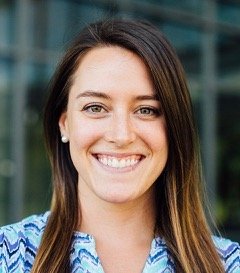Virtual Meeting of the Princeton ACS Section
Tuesday, April 5, 2022
6:00 pm via GoToMeeting
“California-Native Elderflowers: How the Volatile Profile Changes with Post-Harvest Processing”
Katie Uhl, PhD Candidate in Food Science, University of California, Davis
Abstract: While elderflower products are commonly seen on grocery store shelves, the subspecies native to the western United States, Sambucus nigra ssp. cerulea, has not been studied before. This study evaluated fresh and dry flowers from elder shrubs growing in northern California, as well as teas made with fresh and dry flowers for their volatile profile via headspace solid-phase microextraction (HS-SPME) gas chromatography mass spectrometry (GC/MS). When comparing the flowers of this subspecies of elder, there were some key differences between the flowers, including the presence of methyl eugenol in the California elderflowers. This compound has not been identified in studies on European (S. nigra ssp. nigra). In addition, the volatile profiles of the teas made with fresh and dry flowers were significantly different from the plain flowers, driven by the presence of short chain aldehydes. This is the first study to compare these four elderflower preparations, and the results highlight the potential of this subspecies of elderflower to be used to develop novel elderflower products that have unique organoleptic properties compared to other elderflower subspecies.
Biography: Katie Uhl is a PhD Candidate in Food Science at University of California, Davis under Dr. Alyson Mitchell. She also holds a bachelor’s in food science from The Ohio State University. Her research at UC Davis has been a part of a California Department of Food and Agriculture collaboration to understand the composition of the subspecies of elderberry native to the western United States, Sambucus nigra ssp. cerulea in order to increase the use of the berries and flowers in value-added foods. Through this project, she has gained a wide variety of analytical skills to study food components, and she hopes to use these skills as a food scientist
******************
“Comparative Analysis of a Variety of Chili Peppers including Synthesized Compounds and Sensory Evaluation”
Dr. Neil C. Da Costa, International Flavors & Fragrances, Inc.
Abstract: Chili peppers are increasingly in demand in modern culinary preparations for use in a variety of International dishes. In-depth volatiles analysis was conducted on several highly pungent chili peppers included habanero (capsicum chinense), green serrano and red chili (capsicum annuum), cumari (capsicum praetermissum) and red and green malagueta (capsicum frutescens) varieties. The main pungency imparting capsaicinoids have been reported. In addition, key to these volatile compositions are esters including the 4-methylpentyl analogues, ionones, macrocyclics, amides and trace sulfur molecules. Comparison of the compositional ratios of components plus synthesized molecules and their sensory evaluations, will be presented.
Biography: Neil received his PhD in organic and analytical chemistry from the University of Hertfordshire just outside London, England. He went on to work at Bush Boake Allen Ltd in London for seven years performing flavor and fragrance GC-MS analysis before being relocated by IFF to Union Beach, NJ in 2001. As a recognized expert in GC-MS, Neil has managed analytical research groups supporting the North American and global flavorists, perfumery research and high-tech quality control. Current work includes authenticity and raw materials analysis.
In addition, Neil has authored over 30 patents, papers and book chapters and presented his research at IFT, the American Chemical Society National meetings and several prestigious European flavor symposia. In 2012 he was Chair of the Agricultural & Food Chemistry Division of the American Chemical Society and organized their national meetings programs for Denver and San Diego.
His work interests include mass spectral research analysis linking volatiles, semi-volatiles and non-volatiles of foods, fragrances, natural products plus new molecule discovery for flavors and fragrances. His hobbies include, travel, gym, TV quizzes and meeting astronauts and cosmonauts.
.
Registration: Registration for the meeting is required. Prior to the meeting, all who have registered will receive the link to join the virtual platform.


